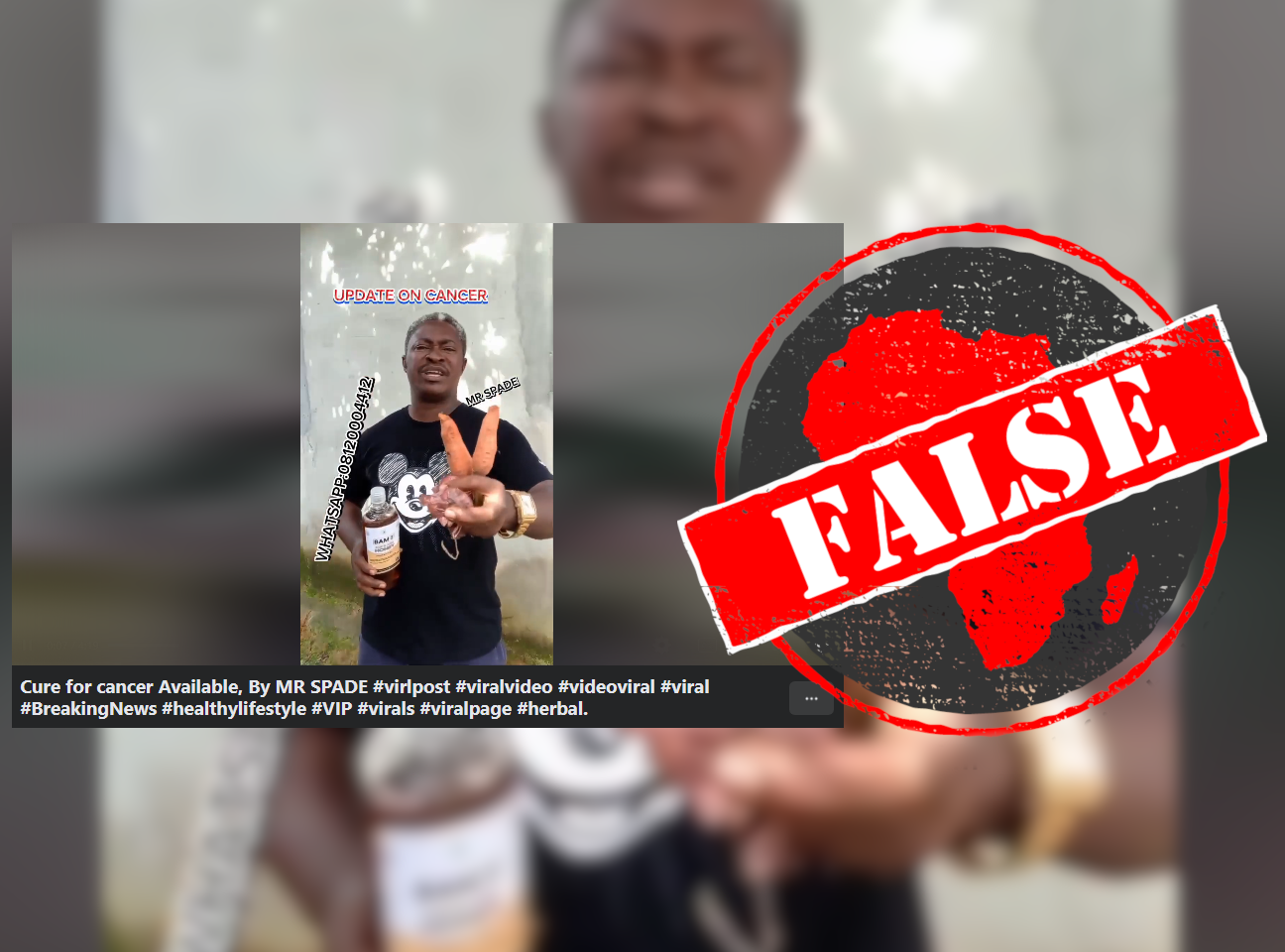IN SHORT: A widely viewed video on Facebook claims that a combination of carrots, onions and honey can slow down and eventually cure cancer. The available evidence does not support this.
A video posted on the Mr Spade Facebook page claims that a mixture of carrots, onions and “original” honey can cure cancer.
A man in the video instructs users to blend four carrots and two onions, then add two “shots” of honey. He says users should take two teaspoons of the remedy in the morning, afternoon and night.
He also claims the concoction will “stop the cancer from spreading” within two weeks and “kill the disease” in a few more weeks.
The video has been viewed over 146,000 times.
But can this mixture of carrots, onions and honey cure cancer? We checked.

First, no single cure for cancer
Cancer is a group of diseases characterised by abnormal cells that grow uncontrollably and destroy normal body tissue.
Different types of cancer are usually named after the type of cell where the cancer starts. For example, lung cancer starts in the lungs and cervical cancer begins in the cells of the cervix.
There are different treatments for cancer, mostly depending on the type of cancer and its stage. Common treatments include surgery to remove cancerous tumours; chemotherapy, which uses drugs to kill cancer cells; and radiotherapy, which uses high-powered energy beams to kill cancer cells.
But there is no one-size-fits-all cure for all cancers as the video suggests.
Can carrots cure cancer? Studies show limited evidence
The main nutrient in a carrot is beta-carotene, which gives the vegetable its characteristic orange colour.
According to the American Institute for Cancer Research, there is limited evidence that carrots reduce the risk of certain types of cancer.
The institute defines “limited evidence” as study results being generally consistent with the conclusion, but that the evidence is “rarely strong enough to justify recommendations to reduce risk of cancer”.
To complicate matters, beta-carotene has antioxidant properties. However, when taken in high doses as a supplement, the compound can increase the risk of certain cancers.
And what about the onion?
Onions, or Allium cepa, are a vegetable closely related to garlic, shallots and leeks. According to medical news site WebMD, they are rich in chemicals that can help protect your heart, lower the risk of some cancers and make it easier for your body to produce insulin.
Onions also have properties that can block cell growth. According to WebMD, purple onions are particularly high in flavonoids, beneficial plant compounds that give many fruits, vegetables and flowers their colour. These flavonoids have been linked to a reduced risk of lung cancer.
Although the current research is promising, it's not enough to definitively say that onions prevent cancer. More research is needed, especially clinical trials in humans.
Can honey help cure cancer?
Researchers have found that honey has therapeutic properties, including antioxidant, antibacterial and antiviral benefits.
Although various studies have shown how the anti-inflammatory and antioxidant functions of honey can prevent the onset and progression of cancer, the exact and full mechanisms of these effects are still not well understood.
Scientists say more research is needed before honey can be recommended as a cancer treatment.
Researchers have not found a way to prevent cancer because each type of cancer is different in origin, composition, and response to treatment. There is also “no guarantee that eating or behaving in a certain way will absolutely assure freedom from cancer development”, says the US-based Emory University’s CancerQuest outreach programme.
Medical experts refute claim
We contacted Dr Johnson Udodi, a senior registrar at the National Hospital Abuja, Nigeria, to ask him about the claim. He said: “The word ‘cure’ entails that a patient is rendered completely free of a particular illness without a chance of relapse.
“In this sense, there is no evidence that the combination of carrot, onion and honey can cure any known cancer. I have never come across any formal scientific literature that even suggests so.”
Similarly, Dr Folarin Opawoye, a consultant in infectious diseases at the Lagos University Teaching Hospital, told Africa Check: “There’s zero scientific evidence that carrots, onions and honey when blended can cure cancer.”
What is known is that eating these three as part of an overall healthy diet can reduce the risk of getting cancer by up to 20%. But they will not on their own slow or cure cancer.
Republish our content for free
For publishers: what to do if your post is rated false
A fact-checker has rated your Facebook or Instagram post as “false”, “altered”, “partly false” or “missing context”. This could have serious consequences. What do you do?
Click on our guide for the steps you should follow.
Publishers guideAfrica Check teams up with Facebook
Africa Check is a partner in Meta's third-party fact-checking programme to help stop the spread of false information on social media.
The content we rate as “false” will be downgraded on Facebook and Instagram. This means fewer people will see it.
You can also help identify false information on Facebook. This guide explains how.


Add new comment